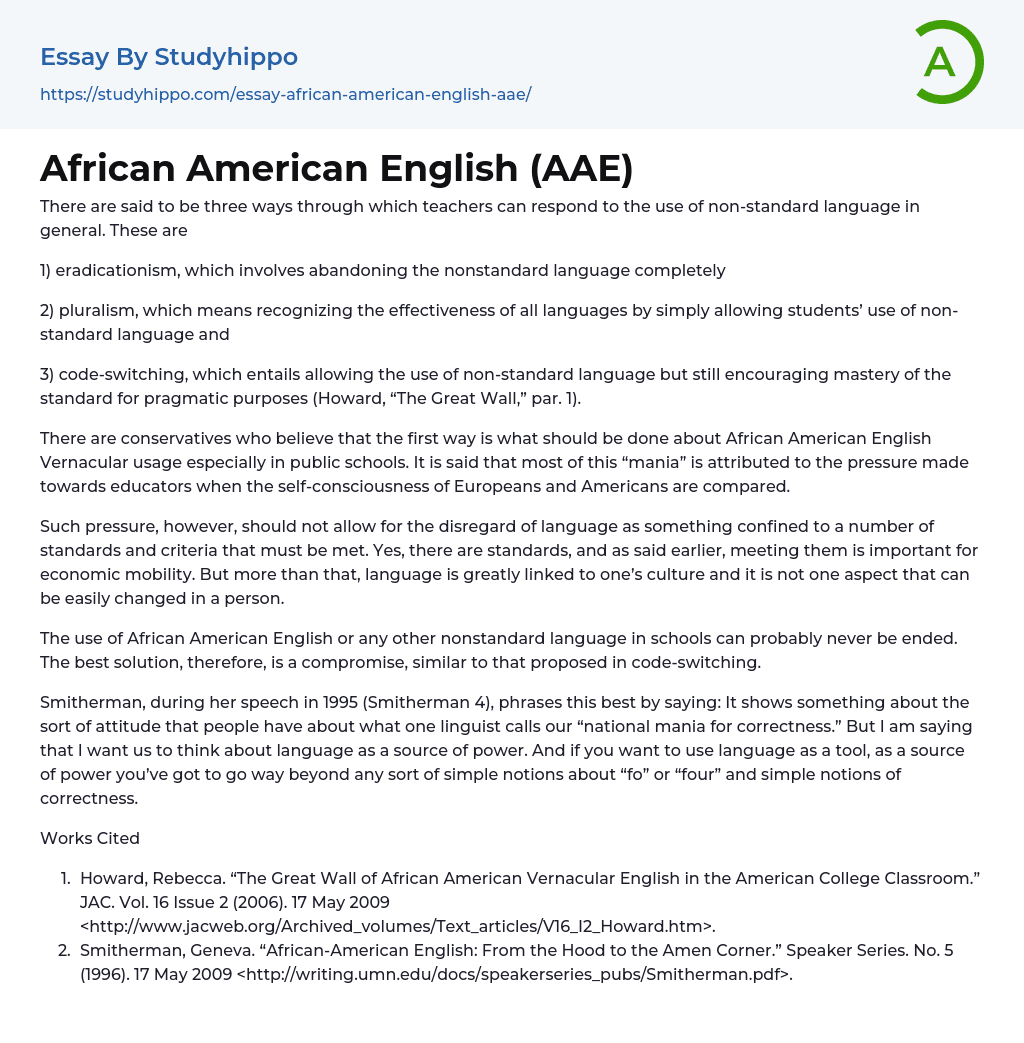There are said to be three ways through which teachers can respond to the use of non-standard language in general. These are
1) eradicationism, which involves abandoning the nonstandard language completely
2) pluralism, which means recognizing the effectiveness of all languages by simply allowing students’ use of non-standard language and
3) code-switching, which entails allowing the use of non-standard language but still encouraging mastery of the standard for pragmatic purposes (Howard, “The Great Wall,” par. 1).
There are conservatives who believe that the first way is what should be done about African American English Vernacular usage especially in public schools. It is said that most of this “mania” is attributed to the pressure made towards educators when the self-consciousness of Europ
...eans and Americans are compared.
Such pressure, however, should not allow for the disregard of language as something confined to a number of standards and criteria that must be met. Yes, there are standards, and as said earlier, meeting them is important for economic mobility. But more than that, language is greatly linked to one’s culture and it is not one aspect that can be easily changed in a person.
The use of African American English or any other nonstandard language in schools can probably never be ended. The best solution, therefore, is a compromise, similar to that proposed in code-switching.
Smitherman, during her speech in 1995 (Smitherman 4), phrases this best by saying: It shows something about the sort of attitude that people have about what one linguist calls our “national mania for correctness.” But I am saying that I want us to think about languag
as a source of power. And if you want to use language as a tool, as a source of power you’ve got to go way beyond any sort of simple notions about “fo” or “four” and simple notions of correctness.
Works Cited
- Howard, Rebecca. “The Great Wall of African American Vernacular English in the American College Classroom.” JAC. Vol. 16 Issue 2 (2006). 17 May 2009 <http://www.jacweb.org/Archived_volumes/Text_articles/V16_I2_Howard.htm>.
- Smitherman, Geneva. “African-American English: From the Hood to the Amen Corner.” Speaker Series. No. 5 (1996). 17 May 2009 <http://writing.umn.edu/docs/speakerseries_pubs/Smitherman.pdf>.
- African American essays
- African American Culture essays
- American Values essays
- Asian American essays
- Chinese essays
- Ethnicity essays
- Ethnocentrism essays
- German essays
- Han Chinese essays
- Hispanic essays
- Identity essays
- Korean essays
- Mexican essays
- Nation essays
- Native American essays
- Race and Ethnicity essays
- White People essays
- Cultural Assimilation essays
- Demography essays
- Ethnographic essays
- Population essays
- Population Growth essays
- Dialect essays
- English Language essays
- Second Language essays
- Semiotics essays
- Sign Language essays
- Spanish Language essays




